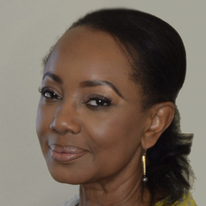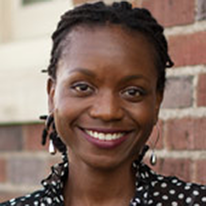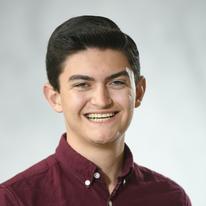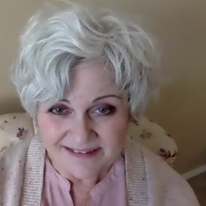
Adjourned
Professor Phil Buhlmann, chair, Senate and Faculty Consultative Committees
To say that the last twelve months have been difficult would be an understatement at best. All of us have experienced an exceptional number of challenges, from changes in workstyle and adapting to new modes of learning and modifications in family obligations, to the social reckoning following the killing of George Floyd. To make things worse, too many of us have lost colleagues, friends, and family members to COVID-19.
In spite of all of these struggles, University senators and the members of various University Senate governance committees performed remarkable work over these past twelve months. Besides the five regular meetings, we had five special University Senate meetings. Topics that required swift action were many, and included the financial stringency caused by COVID-19, the new procedures required by changes in the federal guidelines on sexual misconduct, modifications to grading and the academic calendar, as well as campus safety and the role of policing forces on our campuses, to name just a few.
Some of the measures that we had to carry out over the last year to address the crises at hand will soon become a thing of the past, hopefully not to be seen again in our lifetimes. Good riddance! But many of the policy changes that we implemented and initiatives that we started will change the University for many years to come, making our institution more successful, thoughtful, and inclusive. There is much effort going on at many levels and on all our campuses to capture innovations that happened over the last year and that we want to keep alive. But we also learned from our errors. Executive Vice President and Provost Rachel Croson and the chancellors are soliciting feedback on pandemic-related practices, policies, and services, as is the systemwide PEAK (Positioned for Excellence, Alignment, and Knowledge) Initiative, which will identify opportunities across non-academic functions to gain capacity and increase efficacy. There will be several opportunities for all of you to provide input to these initiatives. I am glad to be at an institution where such input is valued, and I encourage you all to speak up.
My role as chair of the Faculty and Senate Consultative Committees (FCC/SCC) is ending soon. Serving as FCC and SCC chair has been a true privilege and has given me an incredible extent of first-hand experience in how our University works, an experience that makes me very optimistic for the future of our institution. Ned Patterson, professor in the College of Veterinary Medicine, has been elected chair of the FCC/SCC for the coming academic year, a role that he will be able to transition into easily after serving for the past year as vice chair. I also extend a warm welcome to Colleen Flaherty Manchester, associate professor in the Carlson School of Management, who will be the new vice chair of the FCC/SCC.
As we are quickly approaching the end of the spring semester, we are all looking forward to a summer that will hopefully provide us with some overdue breaks and the time to refocus on what is most important in life. This is a time of relaxation and hope. The wide availability of COVID-19 vaccines in particular is a big relief. I congratulate all those of you who have already been or are getting vaccinated in the coming weeks and months. I thank you, because by getting vaccinated you are not only protecting yourself, but you are also doing an important service to our whole community.
Wishing you a safe and healthy summer.
Recognizing Outstanding Service to University Senate Governance
The Outstanding Service to University Senate Governance Recognition honors faculty, P&A, and civil service employees who have made a significant impact on University Senate governance. This year’s recipients are Terry Beseman, Etty DeVeaux, and Tabitha Grier-Reed.

Terry Beseman, finance manager, MINITEX, University of Minnesota Libraries, is currently the chair of the Civil Service Consultative Committee (CSCC) and Civil Service Senate (CS Senate) after serving as chair-elect. Terry is a voice of strength and determination, and has elevated the role of the CSCC and CS Senate throughout University shared governance. As chair, he has brought many issues that have an impact on civil service employees to the forefront, including advocating for changes to the Administrative Policies: Vacation Donation Program for Civil Service and Union-Represented Staff and Non-Renewal of Appointment for Academic Professional and Administrative Employees. Under Terry’s astute leadership, CSCC also worked to build relationships with members of the Board of Regents (BOR). The work that was done this past year will provide a benchmark for BOR outreach for future CSCC leadership. Terry has been actively involved in University Senate governance since 2012, first as a senator on the Civil Service Senate and, at the same time, a civil service senator on the University Senate. Terry serves as a member of the Civil Service Communications Subcommittee; and as a member and was chair of the Civil Service Compensation and Benefits Subcommittee. He is credited with fostering participation of others in University Senate shared governance through his connections and his active participation.

Etty DeVeaux, chief of staff, Graduate School, has served as the chair of the Senate Committee on Committees (ConC) for the past two years. Prior to chairship, Etty served for two years as one of the P&A representatives on ConC. As chair, she has made significant contributions that are considered enduring, including a marketing plan to encourage participation in University Senate governance, improved practices on how ConC does its work, and promoting a comprehensive handbook for new committee chairs. Under her leadership, University Senate governance has adopted the slogan, “Are you Driven to Serve?” And, this past year, Etty took up the complicated task of leading ConC to identify a chair, seat members, and recommend ex officio membership, to a newly created senate committee called the Campus Safety Committee. Etty has been actively involved in University Senate governance since 2012. She was elected chair-elect and then chair of the P&A Consultative Committee and P&A Senate, and was a member of the University Senate. Every committee Etty has served on is improved because of her commitment and passion for ensuring voices are heard and the well-being of the University is first and foremost. Etty is an outstanding ambassador for University Senate governance and inspires others to serve.

Tabitha Grier-Reed, professor, College of Education and Human Development, has been a key faculty voice in University Senate governance since 2013. She is credited with contributing important insights that influenced faculty thinking and positions on numerous important issues, including the building renaming effort, the liberal education redesign effort, and most recently, the social unrest following the murder of George Floyd. Tabitha was instrumental in connecting the minoritized and Indigenous faculty community with the Faculty Consultative Committee (FCC) when these and other critical discussions and decisions were being considered. Currently she serves on the Senate Committee on Finance and Planning. Her full service record is extensive, including serving on the Senate Committee on Faculty Affairs and the Faculty/University Senates, and as an elected member of the FCC (2017-20). Because of her first-class reputation and exceptional contributions to University Senate governance, Tabitha has been asked to take on important governance leadership roles, including the FCC Freedom of Speech Task Force, the search committee for the executive vice president and provost, the search committee for the vice president for equity and diversity, and most recently, she was asked to co-chair President Gabel’s systemwide mental health initiative. Her colleagues wrote in her nomination, “She has served continuously, extensively, and excellently; she is a valued and sought-after voice across the University of Minnesota system.”
The Big Issues
Proctorio
Representatives from the Minnesota Student Association (MSA) brought a resolution regarding the e-proctoring software Proctorio to the attention of University Senate governance. In particular, the resolution cited student concerns about the camera function, which utilizes an artificial intelligence (AI) to monitor students and flag behavior that may be indicative of academic misconduct. Specific areas of concern included privacy issues, especially instructors having access to view and record students’ private space, often their bedrooms; and equity issues such as racial, cultural, and disability-related disparities in the accuracy of the AI. Student mental health was another major area of concern, as many students reported feeling more stressed about being erroneously flagged for cheating than about the exam itself. This issue was discussed in several committees, including the Faculty Consultative Committee (FCC), Senate Committee on Educational Policies (SCEP), the Senate Committee on Information Technologies (SCIT), and the Student Academic Integrity Committee (SAIC). While faculty and staff were generally sympathetic to the issues raised in the resolution, many expressed concern over an increase in academic dishonesty during the pandemic. For this reason, many deemed Proctorio’s camera function essential during remote exams, especially for large classes for which physically monitoring students via Zoom or other technologies is not feasible. SAIC wrote a statement outlining these concerns and others, and proposing alternate solutions for addressing the concerns raised in the MSA resolution.
Recommendations to the M Safe Implementation Team
Many governance committees participated in discussions with Dr. Cedric Alexander during his review of the University of Minnesota Police Department (UMPD) in the fall. Upon release of Dr. Alexander’s report in the spring, President Gabel created the M Safe Implementation Team, charged with advising the president on implementation of Dr. Alexander’s recommendations. While committees anticipate meeting with the M Safe team as its work progresses, the Equity, Access, and Diversity Committee (EAD) and the Disabilities Issues Committee have written letters to the team with their initial recommendations. The Disabilities Issues Committee’s letter highlighted the fact that a large percentage of police-on-citizen violence involves people with disabilities, and underlined the importance of de-escalation training for officers. EAD’s letter emphasized the need to address barriers to trust, such as historical trauma and systemic racism, and advocated for increased vetting of officers.
Fixed Term/Contract Faculty and Instructors
During the spring semester, a number of governance committees wrestled with issues pertaining to fixed-term and contract faculty and instructors. The Fixed Term/Contract Faculty and Instructors Task Force, led by Ned Patterson, FCC vice-chair, is working to clarify and codify how this category of faculty is represented in University Senate governance. The task force has been in consultation with the Academic Freedom and Tenure Committee (AF&T), the Senate Committee on Faculty Affairs (SCFA), the P&A Consultative Committee (PACC), the FCC, and the Health Sciences Faculty Consultative Committee (HS FCC).
University Senate Governance Working For U
Faculty Consultative Committee (FCC)
The FCC spent much of the semester focused on consulting with the president and executive vice president and provost on time sensitive issues, addressing student legislative actions, and reviewing and discussing administrative policy changes. This engaging—and at times overwhelming—work exemplifies collaborative effort in shared governance.
In the midst of COVID-19 and the social unrest in and around Minneapolis, University leadership called on the FCC to comment on relevant issues, including future teaching modalities, accommodations for commencement ceremonies, the future of workspace for faculty and staff, auxiliary budget decisions, and policing and safety issues on campus. In addition to collecting feedback from members, both the president and the executive vice president and provost visited regularly with the committee to report on the administration’s progress.
The FCC also heard frequently from students who expressed concerns about a number of sensitive topics, such as UMPD presence at protest sites, the weapons arsenal and future funding related to that department, and student privacy concerns regarding online proctoring software (e.g. Proctorio). Committee members continue to discuss these concerns and provide input to the students on behalf of the faculty.
In addition to broad consultation with the administration and students, the FCC has participated in an ambitious effort to review administrative policies throughout the semester. Many of these were educational policies, most of which require approval by the FCC, in addition to the Senate Committee on Educational Policy (SCEP). Among them were two particularly critical policies: the Administrative Policy: Academic Appointments with Teaching Functions, and the Administrative Policy: Evaluation of Teaching: Twin Cities, Crookston, Morris, Rochester. Both of these policies were also discussed at length in other Faculty Senate committees, resulting in a statement from the Academic Freedom and Tenure Committee (AF&T) titled, A Holistic Approach to the Evaluation of Teaching and the Role of Student Rating of Teaching (SRT) Forms in the Process, which was endorsed by the FCC, and a letter of concern about Tenure and Academic Freedom at the University of Minnesota Rochester, drafted by the University of Minnesota Rochester faculty and discussed by the FCC.
Although the semester is coming to an end, the committee remains busy. Topics for the remainder of the academic year include a conversation with President Gabel and Senior Vice President for Finance and Operations Myron Frans about the UMPD’s involvement in the West Command Task Force; consultation with the Office of Equal Opportunity and Affirmative Action on a new discrimination policy; and discussions with the Huron Consulting representatives about the PEAK Initiative.
Student Senate Consultative Committee (SSCC)
The Student Senate Consultative Committee (SSCC) and Student Senate addressed a variety of issues this semester and met with a number of University administrative leaders. Topics included an in depth discussion with representatives from Academic Support Resources (ASR) regarding the MyU eAgreement concerning student financial obligations and responsibilities. Students expressed concerns that some of these notifications were sent at inconvenient times and were perceived as confusing and frustrating. Stacey Tidball, director of Continuity and Compliance at ASR worked with student leaders to answer their questions and incorporate shared suggestions on how to better implement this process moving forward. The SSCC also heard from Lisa Lemler, the associate director for wellness at University Recreation and Wellness, who provided information regarding a new student wellness portal called YOU@UMN. This new program, which was piloted this semester, is now fully available to all students on every campus and is intended to be a one stop, customizable platform for students to access and utilize resources, programs, and services related to student wellbeing.
Additionally, the Student Senate worked collaboratively to pass multiple resolutions this semester. One of the most ambitious resolutions was authored by SSCC Chair Briggs Tople calling for the demilitarization of the University’s policing forces. This resolution was heard by multiple committees and stakeholders and was ultimately passed by the University Senate at its April meeting. Another resolution of note was led by Erika Swant, the Professional Student Government (PSG) representative to the SSCC. With COVID-19 impacting nearly every aspect of University life, Swant authored a resolution aimed at increasing COVID testing for students, especially in areas that may be underserved, like the St. Paul campus. The resolution further went on to ask the University’s administration to include students in its plans for future administering of COVID-19 vaccines if the University becomes a partner with the State of Minnesota.
Civil Service Consultative Committee (CSCC)
The CSCC continued the academic year with another busy semester. In keeping with the committee’s priority to increase visibility and build a relationship with the Board of Regents (BOR), members met with Regent Darrin Rosha in January and Regent David McMillan in April. Discussions with the regents centered on concerns related to campus safety, the impact of the Retirement Incentive Option (RIO), compensation issues, and employee burnout.
At the start of the year, the CSCC set three goals. In addition to prioritizing outreach with the BOR, the committee’s two other goals were policy related and required collaboration with the Office of Human Resources (OHR). First, CSCC leadership advocated for revised language to the Administrative Policy: Vacation Donation Program for Civil Service and Union-Represented Staff Employees, to allow P&A staff to donate vacation time to civil service employees, among other things. That language has been added to the policy, and will go to the President’s Policy Committee (PPC) for final approval in June. Second, the CSCC advocated for language changes to the Administrative Policy: Non-Renewal of Appointment for Academic Professional and Administrative Employees, to allow years of service as a civil service employee to count toward a non-renewal notice if an employee is reclassified to a P&A position.
The CSCC continues to consult with the administration on the PEAK Initiative and campus safety issues. The committee continues to advocate on behalf of constituents experiencing the impacts of the RIO and employee burnout.
P&A Consultative Committee (PACC)
The PACC made substantial strides this semester towards a number of important initiatives. Working with the Office of Human Resources (OHR), members of the P&A Benefits and Compensation Subcommittee (B&C) finalized the Parental and/or Medical Leave Planning Tool, created to help ensure that all P&A staff taking extended leaves are aware of the choices available to them. PACC Chair Erin Heath and PACC Chair-elect Scott Creer worked with representatives from OHR and the Office of the President to bring about awareness of the lack of supportive services in place when a staff member’s spouse dies, and the challenging administrative red tape that the surviving spouse is required to negotiate. The discussions have led to a reorganization of the process with clearer guidelines, and a case manager designated for each staff member going through this process.
As with so many governance committees this semester, PACC engaged in consultation on multiple important resolutions, initiatives, and administrative policy revisions and updates. Heath and Creer continue to work with OHR on updating language in those policies and procedures that are especially impactful for P&A staff, including deferral of vacation leave, early terminations due to program curtailment, and post-COVID-19 return to campus and work-flexibility planning.
This semester, the work of PACC subcommittees has coalesced around increasing overall engagement in governance by P&A constituents. Professional development events, jointly sponsored by the P&A Professional Development and Recognition Subcommittee (PD&R) and the Civil Service Communications and Outreach Subcommittee, saw substantial increases in attendance. The outreach subcommittee created an informational recruitment flyer and held virtual office hours for those interested in learning more about serving on the P&A Senate or in leadership roles on PACC. The P&A Communications Subcommittee provided much needed information and links to resources as the University community made its way through the ever-changing landscape necessitated by the pandemic. B&C continued to work diligently with OHR, and surfaced P&A staff concerns around availability of and access to COVID-19 vaccines, reimbursement rates for mental health coverage, and issues related to work overload due to the large number of staff who opted for the Retirement Incentive Option (RIO).
Spotlight On: Briggs Tople
Chris Kwapick, Senate Associate, University Senate Office

When Briggs Tople first enrolled at the University of Minnesota, he, like many other students, didn’t necessarily know what he wanted to do, but he definitely knew what he didn’t want to do. Prior to his first classes, Tople’s older brother, Tannon, then an undergraduate himself, took Briggs on a tour of campus. He vividly remembers crossing the Washington Avenue Bridge and seeing all of the colorful panels advertising and promoting the hundreds of student activities and groups at the Twin Cities campus. At that point, he told his older brother that he would never join any sort of student government. Fast forward two years and Tople is finishing a very active and successful year as chair of the Student Senate Consultative Committee and Student Senate.
“When I thought of student government, in my mind I recalled a type of government that happens in high school, which isn’t actually any sort of government but acts more as a planning committee,” Tople said. While Tople may have been hesitant to officially take action or get involved with student governance, his desire to help others has always been a driving force in his life. He said, “throughout my childhood, I was helped out a lot and I was pushed constantly. If I can share that same push by helping other people in any fashion, then I'm okay with that.” So when classmates around him expressed concerns about issues like textbook affordability, the renaming of buildings on campus, and concerns related to residential and dining halls, Tople felt the need to dive in, research the issues, and get to work to find solutions. His passion led him to run for an at-large position on the Minnesota Student Association (MSA) where he was promptly elected to represent MSA on the Student Senate for the 2019-20 school year. During this time, Tople became very interested in many policies and practices that were impacting the entire University system. Simultaneously, a global pandemic swept over all of our lives and Tople understood that this would create a whole new set of challenges for students. It was at that point that he decided to run for chair, stating, “not only did I want to advocate for system campuses and their issues, I wanted to be an active advocate for the student voice.”
In this role, Tople was surprised by how much he was able to engage directly with other University leaders and stakeholders, especially in his work with the “COVID advisory meetings,” where he worked directly with administrators to plan for a safe return to campus in the fall of 2020. “I always thought there was an ‘us versus them’ mentality when it came to student and administrative relationships,” he said. It was this willingness to meaningfully engage that led him to lead a number of advocacy initiatives, especially around social and community justice. After the murder of George Floyd, Tople became a stunch advocate for the demilitarization of the University of Minnesota Police Department, citing concerns that his fellow students expressed during protests last summer. Through many of the relationships he developed with previous issues, Tople spent copious amounts of time consulting with administrators, experts, and a wide range of the University community to craft a number of resolutions that would ultimately gain the approval of the University Senate.
Being involved in addressing these various issues has had a direct impact on Tople’s career goals. As a political science major, he has focused his coursework on policy making and could see himself get into politics professionally. He said that fundamentally this work has been an incredible outlet for his desire to help others, which he learned at a young age. “If people have an issue, it needs to be addressed, because whether intended or unintended, policies have a tremendous impact on people.” As Tople looks ahead, he hopes to continue to advocate for students wherever he can and be a conduit of change for others who may not realize the power they possess. As he reflected on this past year, he noted how he and his brother now laugh about that first experience on the Washington Avenue Bridge. “Tannon still makes fun of me for that, but it has been a wonderful opportunity for me to help out where I can and better discover where I can go from here.”
University/Faculty Senate Meeting Recaps
February 25, 2021
At the first University/Faculty Senate meeting of the spring semester, senators were formally introduced to Lisa German, dean of the Libraries and University librarian.
Additionally, the Faculty Senate approved revisions to a number of educational policies, as well as the recommendation from the Council on Liberal Education (CLE) to revise and rename the Diversity and Social Justice liberal education theme to Race, Power, and Justice in the United States.
March 25, 2021
The major item of business at the University/Faculty Senate meeting on March 25, 2021, was discussion of a student-led resolution calling for demilitarization of campus policing forces. Senators engaged in a lively and sometimes heated discussion of the topic. Those speaking in favor of the resolution cited racial justice and student mental health, while those against were mainly concerned with active shooter scenarios and the ability of officers to protect members of the campus community and themselves.
At this meeting, senators also approved the officers for the Faculty Senate for 2021-22. Professor Carol Chomsky will return as vice chair, and Professor Mitch Zamoff will again serve as parliamentarian. We welcome Professor Rachna Shah as the new clerk of the senate, and thank Professor Robert Goldstein for his many years of service in that role.
April 22, 2021
At the April University and Faculty Senate meeting, senators continued discussion and took action on the resolution on demilitarizing campus police. Following the advice of senators at the March University Senate meeting, Student Senate Chair Briggs Tople split the recommendations in the demilitarization resolution [link to it] into seven separate motions. Senators approved all seven recommendations.
Senators also approved ex officio membership for the Campus Safety Committee, as well as the slate of candidates for the 2021-22 Faculty Consultative Committee (FCC). Ballots have been sent to the tenured and tenure-track faculty on the Twin Cities campus and the non-unionized faculty on the Duluth campus, and that election will wrap up in mid-May.

Message from the Director
Looking Forward
Spring semester has been a whirlwind. University Senate governance committees continue to be actively engaged, as you have read in the above articles. And, as much as those of you who serve in governance have done and accomplished, there is still much to do. Governance committees have an extensive list of important topics to cover during the remainder of this academic year and into next fall. The Senate Committee on Committees (ConC) is working hard to seat members on the newly created Campus Safety Committee, anticipating that most of its membership will be seated this semester. It’s been a tsunami in terms of the number of policies governance committees have reviewed and issues they have dealt with. Many educational policies have made their way through committees and the Faculty/University Senates. In addition, there are many other important policies and issues that are still in the process of consultation, including a new discrimination policy, Board of Regents Policies: Namings, Code of Conduct, Student Conduct Code; and, a work from home policy, to name a few. Consultation will continue on the PEAK Initiative into May; and, the University Senate Constitution, Bylaws, and Rules Review Committee will continue its comprehensive review into the summer and fall.
Members of our University Senate governance community continue to amaze me. They have stepped up and because of their contributions and hard work, the University is a better place.
I hope this summer provides you with time to rest, rejuvenate, and enjoy. I look forward to seeing many of you—hopefully in person—next fall.
With all best wishes,
Vickie Courtney